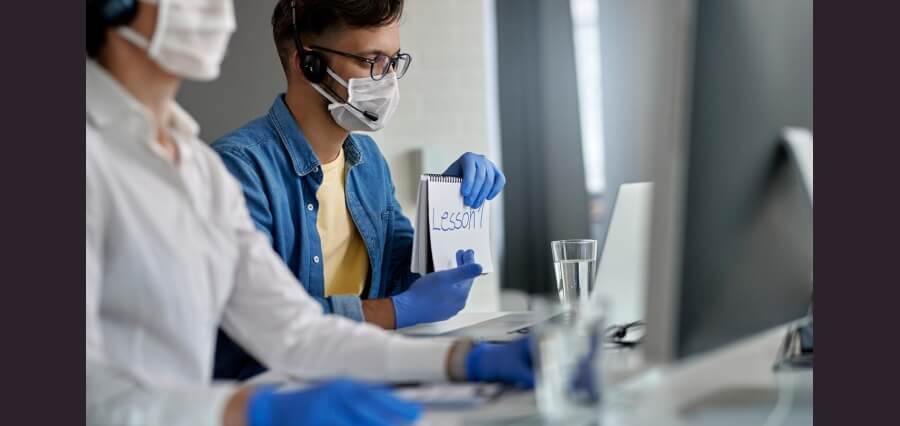Medical dosimetrists are crucial in radiation oncology, meticulously designing radiation treatments for cancer patients. They use their specialized knowledge to ensure the radiation is applied accurately and securely, optimizing its impact on the tumor while protecting normal tissue.
This article examines the path to a career as a medical dosimetrist, a profession that combines detailed scientific knowledge with advanced technology to combat a major global health issue.
Enrolling in Dosimetry School
The initial step to a career in medical dosimetry involves getting the appropriate education. Future dosimetrists need to have a scientific background, typically in biology or physics, to meet the educational requirements. It’s essential to join a recognized dosimetry school offering programs tailored to teach everything needed for the profession, from fundamental medical terms to intricate treatment planning.
Students have options ranging from certificate programs, which might ask for some prior healthcare experience or a related degree, to more extensive bachelor’s or master’s degree programs that offer thorough studies and usually don’t demand previous experience.
Understanding Radiation Physics and Biology
To excel as a medical dosimetrist, you must grasp the fundamentals of radiation physics and biology. These areas form the core of dosimetry programs, imparting an understanding of how radiation engages with human tissue and its safe utilization in cancer therapy.
Training delves into radiation properties, its biological impacts, and the fundamentals of cancer treatment techniques. Armed with this knowledge, dosimetrists can make precise choices regarding radiation beam strength and direction in treatment strategies.
Gaining Clinical Experience
Dosimetry education includes clinical training where students can put into practice their theoretical understanding in actual situations. This practical learning takes place at hospitals or places for treating cancer, and it is supervised by experienced professionals. In this training, students get a look at the usual duties of a dosimetrist like setting up patients, handling radiation machines and following safety rules.
This practical experience is vital for preparing future dosimetrists to navigate the challenges of patient care and personalized treatment. Moreover, it fosters the development of critical thinking and problem-solving abilities necessary for addressing various patient scenarios and complex cancer diagnoses.
Mastering Treatment Planning Software
In today’s medical landscape, technology is vital, and medical dosimetry is no different. Dosimetrists need to excel in specialized software designed for crafting and executing radiation treatment plans. This software enables dosimetrists to model and visualize treatment possibilities to enhance radiation delivery.
Mastering this technology is crucial; directly impacting treatment accuracy and patient results. With technology advancing, continuous training and flexibility in adopting new software versions and features are essential for success. Moreover, the ability to use new technologies like artificial intelligence and machine learning tools smoothly in everyday work is a crucial skill that can enhance treatment planning and speed.
Certification and Licensing
When you finish your needed education and training, the following goal is certification. Usually, in the United States, this comes from the Medical Dosimetrist Certification Board (MDCB). This includes a thorough test to check the knowledge and abilities of a candidate. In some places, they may also require certain medical dosimetrist licenses, which give another level of professional acknowledgment.
These credentials are more than just formalities; they demonstrate an individual’s proficiency and dedication to upholding high standards in cancer treatment planning. Pursuing ongoing recertification and advanced credentials can also lead to opportunities in leadership roles and specialized areas within radiation therapy. This reflects a professional’s commitment to excellence and advancement in the field.
Continuing Education and Professional Development
The domain of medical dosimetry is perpetually progressing, spurred by technological breakthroughs and fresh research insights. To keep pace, dosimetrists must pursue continuous education and professional enhancement. This could involve reading education magazines, joining workshops, seminars, and conferences, engaging in online webinars, or enrolling in courses that highlight recent innovations in radiation therapy.
Active participation in relevant professional bodies also offers critical chances for networking and career advancement, ensuring dosimetrists remain linked with colleagues and informed about industry shifts.
Final Thoughts
Entering the field of medical dosimetry demands a solid foundation in science, proficient technical abilities, and a dedicated approach to caring for patients. This profession provides a special chance to profoundly influence cancer patients’ treatment outcomes, helping to ensure they get the most precise therapy they need.
For individuals who are passionate about combining healthcare with advanced technology, pursuing a career in medical dosimetry can be deeply fulfilling and influential. It requires substantial dedication to complete the demanding educational requirements, but the outcomes—feeling professionally fulfilled and realizing that your efforts have a tangible positive effect—are substantial.









